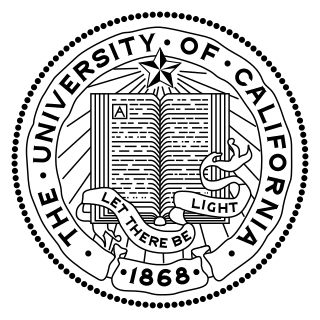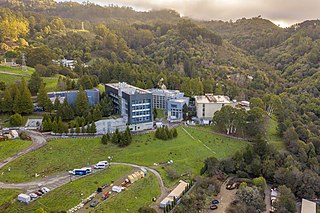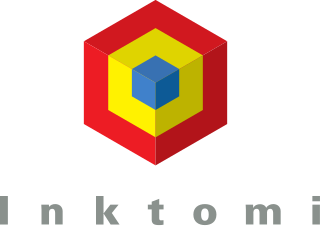
The University of California (UC) is a public land-grant research university system in the U.S. state of California. Headquartered in Oakland, the system is composed of its ten campuses at Berkeley, Davis, Irvine, Los Angeles, Merced, Riverside, San Diego, San Francisco, Santa Barbara, and Santa Cruz, along with numerous research centers and academic centers abroad. The system is the state's land-grant university. Major publications generally rank most UC campuses as being among the best universities in the world. In 1900, UC was one of the founders of the Association of American Universities and since the 1970s seven of its campuses, in addition to Berkeley, have been admitted to the association. Berkeley, Davis, Irvine, Los Angeles, Santa Barbara, Santa Cruz, and San Diego are considered Public Ivies, making California the state with the most universities in the nation to hold the title. UC campuses have large numbers of distinguished faculty in almost every academic discipline, with UC faculty and researchers having won 71 Nobel Prizes as of 2021.

The University of California, Berkeley is a public land-grant research university in Berkeley, California. Founded in 1868 and named after the Anglo-Irish philosopher George Berkeley, it is the state's first land-grant university and is the founding campus of the University of California system.

Lawrence Berkeley National Laboratory (LBNL) is a federally funded research and development center in the hills of Berkeley, California, United States. Established in 1931 by the University of California (UC), the laboratory is sponsored by the United States Department of Energy and administered by the UC system. Ernest Lawrence, who won the Nobel prize for inventing the cyclotron, founded the lab and served as its director until his death in 1958. Located in the Berkeley Hills, the lab overlooks the campus of the University of California, Berkeley.

Inktomi Corporation was an American Internet service provider (ISP) software developer based in Foster City, California. Customers included Microsoft, HotBot, Amazon.com, eBay, and Walmart.

David Robert Filo is an American billionaire businessman and the co-founder of Yahoo! with classmate Jerry Yang. His Filo Server Program, written in the C programming language, was the server-side software used to dynamically serve variable web pages, called Filo Server Pages, on visits to early versions of the Yahoo! website.

Donald Arthur Glaser was an American physicist, neurobiologist, and the winner of the 1960 Nobel Prize in Physics for his invention of the bubble chamber used in subatomic particle physics.

Armand Paul Alivisatos is a Greek-American chemist and academic administrator who has served as the 14th president of the University of Chicago since September 2021. He is a pioneer in nanomaterials development and an authority on the fabrication of nanocrystals and their use in biomedical and renewable energy applications. He was ranked fifth among the world's top 100 chemists for the period 2000–2010 in the list released by Thomson Reuters.

Kenneth Yigael Goldberg is an American artist, writer, inventor, and researcher in the field of robotics and automation. He is professor and chair of the industrial engineering and operations research department at the University of California, Berkeley, and holds the William S. Floyd Jr. Distinguished Chair in Engineering at Berkeley, with joint appointments in Electrical Engineering and Computer Sciences (EECS), Art Practice, and the School of Information. Goldberg also holds an appointment in the Department of Radiation Oncology at the University of California, San Francisco.
Marc Davis was founding director of Yahoo! Research Berkeley, and led Garage Cinema Research.
The Energy Biosciences Institute (EBI) is an organization dedicated to developing new sources of energy and reducing the impact of energy consumption. It was created in 2007 to apply advanced knowledge of biology to the challenges of responsible, sustainable energy production and use. Its main goal is to develop next-generation biofuels—that is, biofuels that are made from the non-edible parts of plants and reduce greenhouse gas emissions.

Eric Allen Brewer is professor emeritus of computer science at the University of California, Berkeley and vice-president of infrastructure at Google. His research interests include operating systems and distributed computing. He is known for formulating the CAP theorem about distributed network applications in the late 1990s.

The California Institute for Telecommunications and Information Technology (Calit2, previously Cal(IT)2), also referred to as the Qualcomm Institute (QI) at its San Diego branch, is a collaborative academic research institution of the University of California San Diego (UC San Diego), the University of California, Irvine (UCI), and University of California, Riverside. Calit2 was established in 2000 as one of the four UC Gray Davis Institutes for Science and Innovation. As a multidisciplinary research institution, it is conducting research and educational programming to leverage emerging technologies to improve the state's economy and citizens' quality of life, while addressing large-scale societal issues. Calit2 also develops and deploys prototype infrastructure for testing new solutions in real-world environments.

The California Institute for Quantitative Biosciences (QB3) is a nonprofit research and technology commercialization institute affiliated with three University of California campuses in the San Francisco Bay Area: Berkeley, San Francisco, and Santa Cruz. QB3's domain is the quantitative biosciences: areas of biology in which advances are chiefly made by scientists applying techniques from physics, chemistry, engineering, and computer science.
The Center for Information Technology Research in the Interest of Society and the Banatao Institute (CITRIS) is a research institute operated by the University of California to facilitate the real-world applications of technological research. Approved in 2000, it is part of the Governor Gray Davis Institutes for Science and Innovation, along with the California Institute for Quantitative Biosciences, California Institute for Telecommunications and Information Technology, and the California Nanosystems Institute. Headquartered at UC Berkeley, CITRIS was founded in 2001 from a desire to see innovative technologies put to practical use in improving the quality of life for people. CITRIS's partner campuses include UC Davis, UC Merced and UC Santa Cruz.
David Ethan Culler is a computer scientist and former chair of the Department of Electrical Engineering and Computer Sciences at the University of California, Berkeley. He is a principal investigator in the Software Defined Buildings (SDB) project at the EECS Department at Berkeley and the faculty director of the i4Energy Center. His research addresses networks of small, embedded wireless devices, planetary-scale internet services, parallel computer architecture, parallel programming languages, and high performance communication. This includes TinyOS, Berkeley Motes, PlanetLab, Networks of Workstations (NOW), Internet services, Active Message, Split-C, and the Threaded Abstract Machine (TAM).
Jean Paul Jacob was a Brazilian electronic engineer, researcher and professor.
The Intel Research Labs were a research division of Intel. The organization was known for most of its life as Intel Research, but towards the end of its life the name Intel Research was re-defined to refer to all research performed in Intel, including work done outside the labs.

Jennifer Anne Doudna is an American biochemist who has pioneered work in CRISPR gene editing, and made other fundamental contributions in biochemistry and genetics. Doudna was one of the first women to share a Nobel in the sciences. She received the 2020 Nobel Prize in Chemistry, with Emmanuelle Charpentier, "for the development of a method for genome editing." She is the Li Ka Shing Chancellor's Chair Professor in the department of chemistry and the department of molecular and cell biology at the University of California, Berkeley. She has been an investigator with the Howard Hughes Medical Institute since 1997.

Tsinghua Shenzhen International Graduate School is a public university established by Tsinghua University and the Shenzhen Municipal Government as a joint venture in 2001. It is located in the University Town of Shenzhen, surrounded by Peking University Shenzhen Graduate School and the Harbin Institute of Technology Shenzhen.

Pieter Abbeel is a professor of electrical engineering and computer sciences, Director of the Berkeley Robot Learning Lab, and co-director of the Berkeley AI Research (BAIR) Lab at the University of California, Berkeley. He is also the co-founder of covariant.ai, a venture-funded start-up that aims to teach robots new, complex skills, and co-founder of Gradescope, an online grading system that has been implemented in over 500 universities across the USA. He is best known for his cutting-edge research in robotics and machine learning, particularly in deep reinforcement learning. In 2021, he joined AIX Ventures as an Investment Partner. AIX Ventures is a venture capital fund that invests in artificial intelligence startups.













